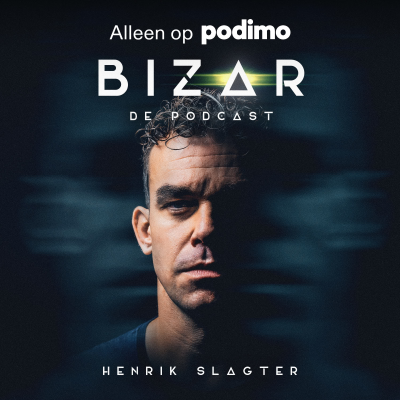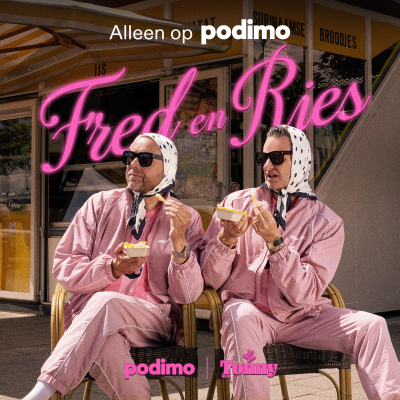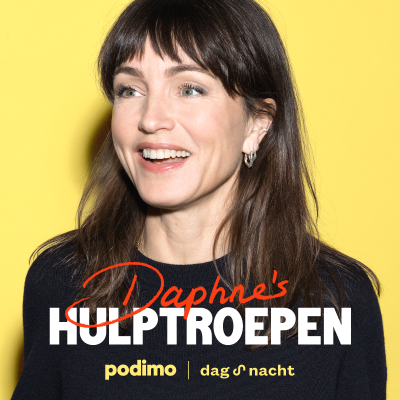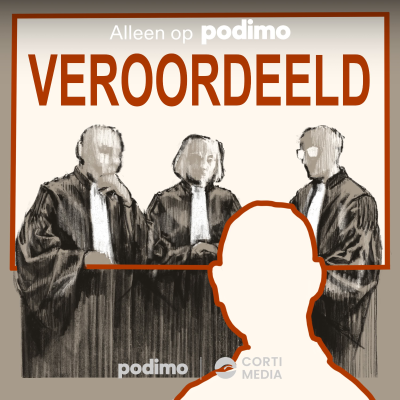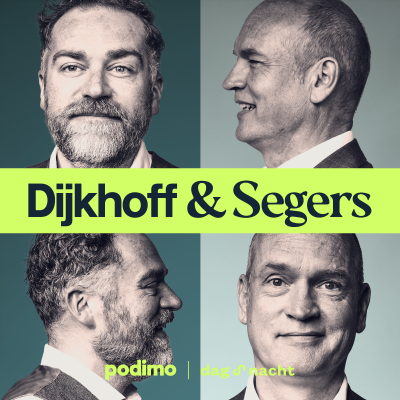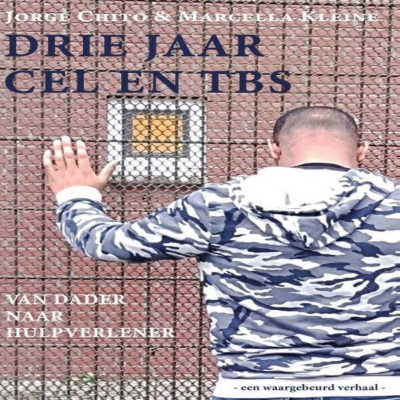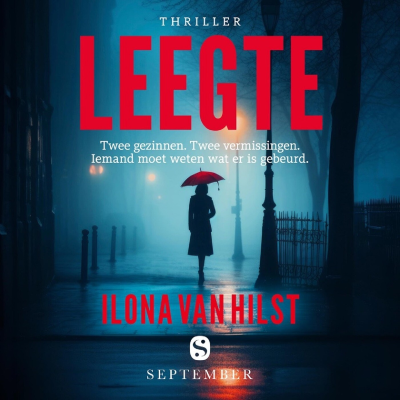
Macro N Cheese
Engels
Technologie en Wetenschap
Tijdelijke aanbieding
2 maanden voor € 1
Daarna € 9,99 / maandElk moment opzegbaar.
- 20 uur luisterboeken / maand
- Podcasts die je alleen op Podimo hoort
- Gratis podcasts
Over Macro N Cheese
A podcast that critically examines the working-class struggle through the lens of MMT or Modern Monetary Theory. Host Steve Grumbine, founder of Real Progressives, provides incisive political commentary and showcases grassroots activism. Join us for a robust, unfiltered exploration of economic issues that impact the working class, as we challenge the status quo and prioritize collective well-being over profit. This is comfort food for the mind, fueling our fight for justice and equity!
Alle afleveringen
452 afleveringenEp 368 - Socialism Unmade: Confronting Five Centuries of Capital with Ali Kadri
“...Some are dancing, some are drowning, but in the end everybody’s going to go under.” Dr. Ali Kadri (Sun Yat-sen University), author of the Unmaking of Arab Socialism, joins Steve to talk about imperialism, development, and why the Arab world keeps getting put through the capitalist meat grinder. Ali argues that capitalism isn’t just markets and greed. It’s a destructive social relationship. Once you look at it that way, many of the world’s mysteries stop being mysterious: war, austerity, pollution, and mass deaths aren’t accidents that occasionally happen to capitalism. They are outcomes to be monetized. The conversation moves to imperialism as capitalism in its concentrated, caffeinated, and brutal form, especially under finance-dominance. Ali describes genocide as both direct (bombs, occupation, ethnic cleansing) and structural (avoidable hunger, disease, debt-driven collapse). He frames the destruction of Arab socialist and anti-colonial projects as strategic for empire: control of oil, geography, and the political threat of regional solidarity. They talk about MMT’s explanation of currency and how the dollar functions as a lever. Ali sees the dollar as power, representing control over global resources and labor. Debt dependence becomes a kind of colonization by spreadsheet. “If the dollar stops for a minute or for a month or so, then we have people going hungry. And so this is a form of colonization, a form of death by the dollar.” They close by pulling democracy down from the clouds. Steve suggests bourgeois elections merely deliver a reshuffling of managers for the same system, and Ali produces a simple metaphor: a multiple-choice exam. The choices have been pre-loaded. And in elections, the result is still class rule. Dr. Ali Kadri is a Visiting Professor at Sun Yat-sen University. He has previously held senior roles at the National University of Singapore and the London School of Economics. His academic work focuses on the political economy of development, imperialism, and the Arab world. He is the author of several important books, including The Accumulation of Waste: A Political Economy of Systemic Destruction; China’s Path to Development: Against Neoliberalism; and The Unmaking of Arab Socialism.
Ep 367 - MMT & Marxism: Finding Common Ground with Owen Bennett
Can Marxists and MMTers find common ground, or are they doomed to be strategic enemies? Steve’s guest is Australian labor historian and organizer Owen Bennett, who founded the Australian Unemployed Workers’ Union in 2015, and more recently, Unionists for a Job Guarantee in 2024. He and Steve explore how to tackle the deep divide between Modern Monetary Theory and the Marxist left. Owen argues that the left's current dismissal of full-employment policy is a historic break from a time when communists and unionists successfully fought for – and won – some major concessions under capitalism. We should look to establish that kind of unity. If the state is a tool of the oligarchs, is fighting for a policy like the Job Guarantee a distraction from revolution, or is it a necessary front in the class war? Steve and Owen discuss austerity, strategy, and whether "socialism or bust" has left the working class with nothing at all. Owen Bennett is a unionist, university tutor, PhD graduate in labour history, activist, author, and researcher. He has published widely on the history of working class struggles against unemployment in Australia. His book on the struggle for full employment in post-war Australia is forthcoming. Owen founded the Australian Unemployed Workers Union in 2015 and, more recently, Unionists for a Job Guarantee in 2024.
Ep 366 - Who Paid the Pipers of Western Marxism? with Gabriel Rockhill
This week Steve invited Gabriel Rockhill to talk about his new book Who Paid the Pipers of Western Marxism? Vol 1 of The Intellectual World War. The war on communism is about protecting imperial super-profits, keeping cheap labor and resources flowing from the Global South to the imperial core. It has never been about lofty values and freedom fries. So why does the empire care about books, grants, and academic careers? Gabriel’s investigation begins with a potent symbol: the legacy of Che Guevara. We know the CIA hunted and executed him. Less known is their parallel mission to assassinate the legacy of his thoughts. By seizing and editing his Bolivian diaries, US intelligence and its media assets would control the narrative of his struggle. It’s a microcosm of a vast, systemic project. It reveals that empires understand a fundamental truth: the pen can be mightier than the sword. That might sound trite but think about it: to control populations and maintain global dominance, you must control the realm of thought, the very imagination of what is possible. The true target of this intellectual war has never been abstract Marxist theory. It is actually existing socialism: the tangible, state-building projects that succeeded in breaking the chains of imperialism. From the Soviet Union and China to Cuba, Vietnam, and beyond, these movements achieved the unthinkable: they halted the imperial value flow. They stopped the hemorrhage of natural resources and cheap labor from the Global South to the capitalist core, claiming their right to self-determination and independent development. This was the existential threat: a model proving that escape from the imperialist world-system was achievable. The panic in the halls of power was not over esoteric debates about Hegelian dialectics, but over the loss of super-profits and the empowering example of successful liberation. Gabriel and Steve discuss why dialectical and historical materialism is more than just a lofty sounding term. It actually matters. It’s like the anti-virus software for propaganda. Instead of being knocked over every time a new headline drops, we have a framework for seeing patterns. Coups, destabilization, narrative management, the whole traveling circus? They all make sense. And they’re all connected. (In fact, you can’t listen to this episode without hearing the dialectical relationship between material control and the control of ideas.) Using the Marxist lens, Gabriel analyzes the socioeconomic base of the “theory industry” and a certain brand of Western or academic Marxism that turns class struggle into a grad-seminar aesthetic and cultural war hobby, safely disconnected from organizing, anti-imperialism, and actual movements. He argues the capitalist system naturally fosters and funds ideas that secure its survival, making knowledge production a commodity-driven system focused on exchange value (career advancement, book sales) rather than use value for liberation. Gabriel isn’t just naming names for sport. (And besides, in the US we already have a long and colorful tradition of naming names, so let’s not be clutching our pearls.) He’s pointing at a system that manufactures respectable “leftist” ideas that don’t threaten empire. As the imperial core becomes more openly brulat at home, we need to reconnect with the international, anti-imperialist thread of revolutionary Marxism if we’re serious about changing anything. Gabriel Rockhill is a philosopher, cultural critic, and activist. He is the Founding Director of the Critical Theory Workshop / Atelier de Théorie Critique [https://criticaltheoryworkshop.com/], Professor of Philosophy and Global Interdisciplinary Studies at Villanova University, and Research Associate at the Laboratoire d’anthropologie politique – LAP (EHESS Paris). He is the author or editor of twelve books, including most recently Who Paid the Pipers of Western Marxism? (Monthly Review Press, 2025) and Requiem pour la French Theory with Aymeric Monville (Éditions Delga, 2024). He is one of the Editors-in-Chief of the World Marxist Review and a co-director of the AIM—Anti-Imperialist Marxism book series.
Ep 365 - Funding White Supremacy with Robert B. Williams
Funding white supremacy is a core, not incidental, function of the modern capitalist state in the U.S. It is also the title of economist Robert B. Williams’ 2025 book, Funding White Supremacy: Federal Wealth Policies and the Modern Racial Wealth Gap. Bob and Steve share the fundamental position that capitalism doesn’t just produce inequality by accident, it builds durable ladders for some and trapdoors for others. Wealth, not income, is the key instrument because it is power that reproduces itself across generations. Bob lays out the major policy mechanism of stealth wealth-building: how the federal government subsidizes asset accumulation through the tax code, especially via “tax expenditures” (deductions, exclusions, preferential treatment) that provide vast benefits to the wealthy. From an MMT perspective, the conversation underlines a crucial point: the state’s problem is not “finding the money,” it’s choosing who gets the public subsidy. A system that claims scarcity around public goods reliably mobilizes massive policy support for private asset appreciation and wealth compounding. In other words, benefits reward ownership and existing assets, not the people struggling to acquire them. Bob situates this historically, tracing the origins of the modern income and estate tax era to the early 20th century and argues that any progressive policy history coexisted with, and was intertwined with, overt white supremacist politics. Robert B. Williams is the Stedman Professor of Economics, Guilford College. Bob has taught economics and political economy for over 40 years. He has written three books, including Funding White Supremacy: Federal Wealth Policies and the Modern Racial Wealth Gap (Cambridge University Press, 2025).
Ep 364 - State Money, Class Struggle with Anthony Anastasi
We’ve made the case before, but it bears repeating: MMT is a politically neutral, descriptive lens explaining the operational realities of a sovereign fiat currency system where the availability of real resources, not money, are the constraint. And Marxism is an analytical framework for understanding class relations and production. The two are not inherently opposed. It’s a mistake to dismiss MMT as capitalist apologetics. Steve’s guest is Dr. Anthony Anastasi, an economist teaching at the Sino-British College, University of Shanghai for Science and Technology. They talk about Anthony’s paper: Marxism and MMT: How Modern Monetary Theory Can Enrich the Debate Amongst Marxists. They dismantle the all-too-common Marxist critiques of MMT, which claim that the state can’t control money’s value, and that MMT lacks a theory of value. (However, the ubiquitous “taxpayer money” framing that feeds austerity myths, is not limited to Marxists.) The discussion reframes the state's monetary capacity as a tool for class struggle rather than a capitalist backstop. They look at the federal job guarantee with reference to Rosa Luxemburg’s concept of non-reformist reform, ie, a reform that can weaken capitalist logic and build working-class consciousness and power. Anthony also brings an on-the-ground perspective, sharing observations from China’s political economy, including local-vs-central financing, RMB-denominated debt, capital controls, and emerging debates that resemble MMT arguments even when not labeled as such. Dr. Anthony William Donald Anastasi is an economist and lecturer specializing in development economics and international political economy. He teaches at the Sino-British College, University of Shanghai for Science and Technology, and holds a Ph.D. from East China Normal University. His research examines how state–business relations, industrial policy, monetary sovereignty, and income distribution shape economic growth, trade patterns, and political power, with a particular focus on China and East Asia. Alongside publishing in SSCI-ranked journals, he regularly writes for the popular press on the Chinese and U.S. economies and global trade. @_AWDA_ on X
Kies je abonnement
Tijdelijke aanbieding
Premium
20 uur aan luisterboeken
Podcasts die je alleen op Podimo hoort
Gratis podcasts
Elk moment opzegbaar
2 maanden voor € 1
Daarna € 9,99 / maand
Premium Plus
Onbeperkt luisterboeken
Podcasts die je alleen op Podimo hoort
Gratis podcasts
Elk moment opzegbaar
Probeer 30 dagen gratis
Daarna € 11,99 / maand
2 maanden voor € 1. Daarna € 9,99 / maand. Elk moment opzegbaar.





